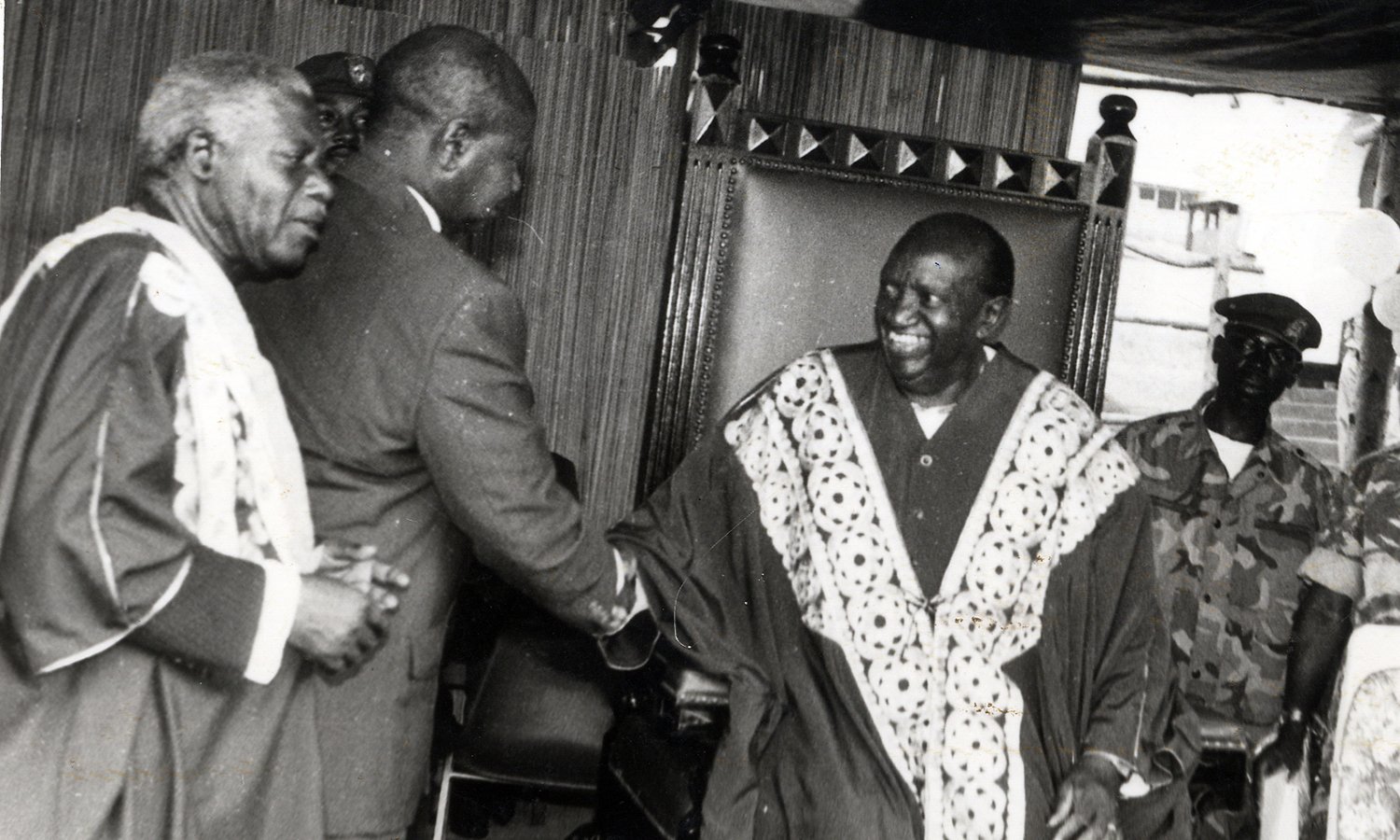Departed head of Busoga clans replaced ahead of burial

Mr Richard Mafumo the Busoga Kingdom Minister for Culture has replaced the late Keith Mutengu as the as the head of all clans (Isabakungania). PHOTO/DENIS EDEMA
What you need to know:
- Mutengu passed away on Sunday morning at Jinja Regional Referral Hospital at the age of 88, with palace sources saying he has been suffering from hypertension and stroke.
Busoga Kingdom clan executives from the 11 chiefdoms have appointed Mr Richard Mafumo, the monarchy’s Minister for Culture, to replace departed Keith Mutengu as the head of all clans (Isabakungania).
Mutengu passed away on Sunday morning at Jinja Regional Referral Hospital at the age of 88, with palace sources saying he has been suffering from hypertension and stroke.
Mr David Lwiigo Igulu Isabirye, the Busoga clan spokesperson, while meeting Busoga clan leaders at the kingdom headquarters in Bugembe, said the clan executives selected Mr Mafumo, whose appointment takes immediate effect.
Mr Mafumo’s appointment is in line with the constitution of the clan, according to Mr Lwiigo.
He added that Mr Mafumo will only hold one title, meaning he will relinquish his portfolio as minister for culture because as the “grandfather of Busoga”, he cannot be sent to perform any activity, but to manage clanship affairs.
“As this has happened, he will at an appropriate time, inform Kyabazinga William Nadiope Gabula IV of the appointment as the new clan head of Busoga, not as Minister for Culture,” Mr Lwiigo said on Monday.
Mr Mafumo says he is thankful to the clan executive committee for their “wisdom” in putting him into that position. “I promise to work together with the same executive. As clan leader, I will move Busoga forward in promoting peace, culture and development,” he said.
Earlier, Mr Mafumo described his deceased predecessor as a person who has been a strong pillar of Busoga Kingdom and as a person who fought for unity among Busoga, especially during the period when the Kingdom was disunited due to leadership wrangles.
“He has contributed to the development of this nation, Busoga Kingdoms and clans in particular, and has been a good leader and stronger pillar of the Kingdom,’’ he said immediately after Mutengu’s death was officially announced by the Kingdom spokesperson, Mr Andrew Ntange.
Mr Ntange said the deceased will on Tuesday (today) lie in state in the Busoga Parliament (Lukiiko), after which the body will be taken to Christ Church Cathedral, and later to his home in Kiwampere village, Bulopa sub-county, Kamuli District for a night vigil and burial on Wednesday.
Mr Mutengu was the first Prime Minister of Busoga Kingdom when the National Resistance Movement (NRM) restored cultural institutions, largely serving in that position during the reign of the late Kyabazinga Henry Wako Muloki.
The former Member of Parliament (MP) of Kagoma County in Jinja District, Mr Frank Nabwiso, described the deceased as “a cultural person who loved his clan, culture and literature”.
According to Mr Nabwiso, Mutengu, whom he also referred to as Difasi Bamulanzeki, in 1952 went through Busoga College Mwiri, joined Kyambogo Teachers’ Training College where he graduated in 1958 as Grade III teacher.
Mutengu later joined Busoga College Mwiri as a teacher and taught for a number of years until he got a scholarship to study at University of Leicester in the United Kingdom, specialising in English.
According to Mr Nabwiso, Mutengu later joined Makerere University in 1966 for a Degree in Literature and graduated in 1968, and was posted to head the Junior Secondary School in Mpumudde and later taken to Busoga College Mwiri as acting Head teacher in 1969.
In the late 1970, he was taken to a school in Bugisu sub-region, where he was appointed Senior Education Officer in the Ministry of Education.
In 1986, he was posted to Jinja Senior Secondary School until 1993 when the NRM restored kingship and he became the first Prime Minister of Busoga Kingdom up to 1988.
Mr Nabwiso credits Mutengu for fighting for the return of Busoga Kingdom property and assets which were confiscated by the government in 1966, including the Igenge Palace among others.




